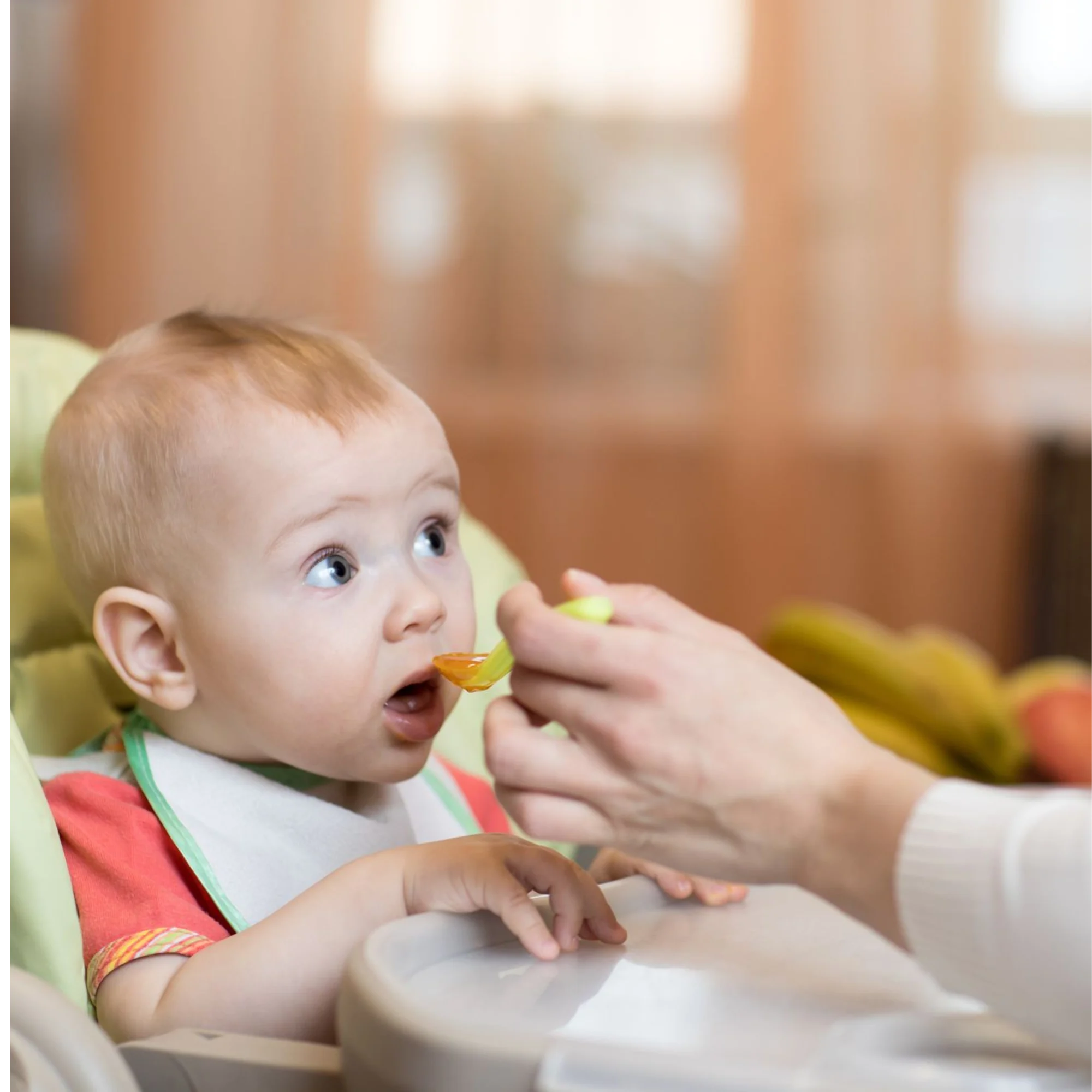My Toddler's Not Talking, Now What?
If you’re the parent or caregiver of a toddler and they’re not yet speaking, you likely have some questions running through your mind. Is this normal? Is my child just a “late talker”? How can I help them? Where do I even start? Today we’re going to address these questions so you feel empowered and prepared to help your little one grow their language abilities.
First off, let’s look at what’s typical in language development. At around 12 months old, toddlers should have a few words and be saying them one at a time. Think single words like “Mama,” “Dada,” “dog,” or other things that are important to them.
By 2 years old, kids typically progress to saying two-word phrases. These can be simple things like, “I eat” or “Help please!”
Every child has their own timeline of development. However, these are important milestones that children should typically reach on time. You can remember these milestones by thinking: one word at age 1, and two words at age 2.
There are several reasons some kids may talk late. Let’s take a look at them together.
One reason to explore is any possible hearing issues. If a toddler can’t fully hear the correct way to say sounds and form words, especially as a baby, this can affect their speech and language development. A hearing test should be performed to rule out any hearing loss. Things like chronic ear infections, which result in fluid in the inner ear, can cause possible hearing issues.
Oral motor issues can also affect a child’s speech. If a child can’t move their jaw, teeth, tongue, and lips in the appropriate way or with the right amount of strength, this makes it difficult for them to speak clearly. A speech therapist can assess oral motor abilities in toddlers.
Another thing to keep in mind is that learning disabilities such as ADHD, intellectual disabilities, or other diagnoses like autism can co-exist with or contribute to language delays.
Similarly, neurological issues can contribute to speech and language problems. These are things like cerebral palsy, muscular dystrophy, and traumatic brain injury. If you have a family history of learning disabilities or neurological issues, or you have concerns, talk with your pediatrician.
Environmental factors are another reason a child may talk late. Too much screen time with an iPad, phone, or TV can decrease the rate at which children acquire language. Toddlers need to play with other people often. Not only do they need that time to interact with others and learn to use words, but they also need to practice playing. Like Jean Piaget said, play really is the work of children. There is a strong link between development of age-appropriate play skills and language skills.
Lastly, another reason children may talk late is simply because of a developmental delay. We don’t always know why, but kids can be delayed in various areas without there being a known cause. I know this can feel frustrating. But once a developmental delay is diagnosed, it’s important to move forward and focus on how to help the child grow from their own starting point.
If your child is around 15 months old and hasn’t started saying true words yet, this is a great time to have them evaluated by a speech therapist. So if a toddler who’s 2 or 3 years old isn’t talking or isn’t pairing words together, it’s extremely important to get an evaluation and begin speech therapy. The sooner intervention begins, the sooner a child can make progress. Speech and language skills build on one another. So the skills that a child is missing need to be mastered before they can go on to the next skill, then the next one and so on.
While speech therapy is necessary for children who are delayed, there are lots of things you can do at home to help your child improve and grow.
Before we review them, please know this: If you haven’t already been doing these things, that doesn’t mean you’ve caused your child’s possible language delay. You should look at these four activities as things you can do going forward to help your child.
First, play with your child often. Remember, play and language have a strong correlation. Play helps children learn to use items symbolically. Maybe they pretend that a rock is a car and drive it through the dirt. Or they pretend a stick is a shovel. Understanding how to represent things in this way helps kids learn how to use words representationally as well–say, knowing that the word “help” will communicate that they need something. Playing also gives kids the chance to learn and use words with others. As you play together, you’re practicing back-and-forth communication and interaction.
Second, read together with your child every day. Children who read one book a day will hear an estimated 78,000 words per year! Reading stories helps kids learn new vocabulary, understand the sounds in our language, and even learn grammar and sentence structure. This is such a simple and fun activity that has huge benefits for language growth.
Third, practice helping your child imitate sounds, words, or phrases. If your child doesn’t yet imitate sounds, start there. Model different sounds like /m/ or /b/, or babbling sounds like “mamama,” or “bababa,” and have them repeat after you.
If they’re making sounds but not talking, focus on words. Pick words that would be motivating to them, like “cookie” or “mama.” You can do the same thing with phrases If that’s where they need to improve. Help them imitate phrases like “More please!” or “Pick up!”
Last, be sure to model language for your child by engaging them in conversation, even if they can’t yet answer you! Your child learns language best from the people they spend the most time with–like you! So take full advantage of your time together and speak to them as much as possible.
I know it can be concerning if your child isn’t talking yet. But with this information, I hope your next steps can feel clearer. Our goal is for you to feel empowered to support your child. The sooner they get the help they need, the faster they’ll make progress.




